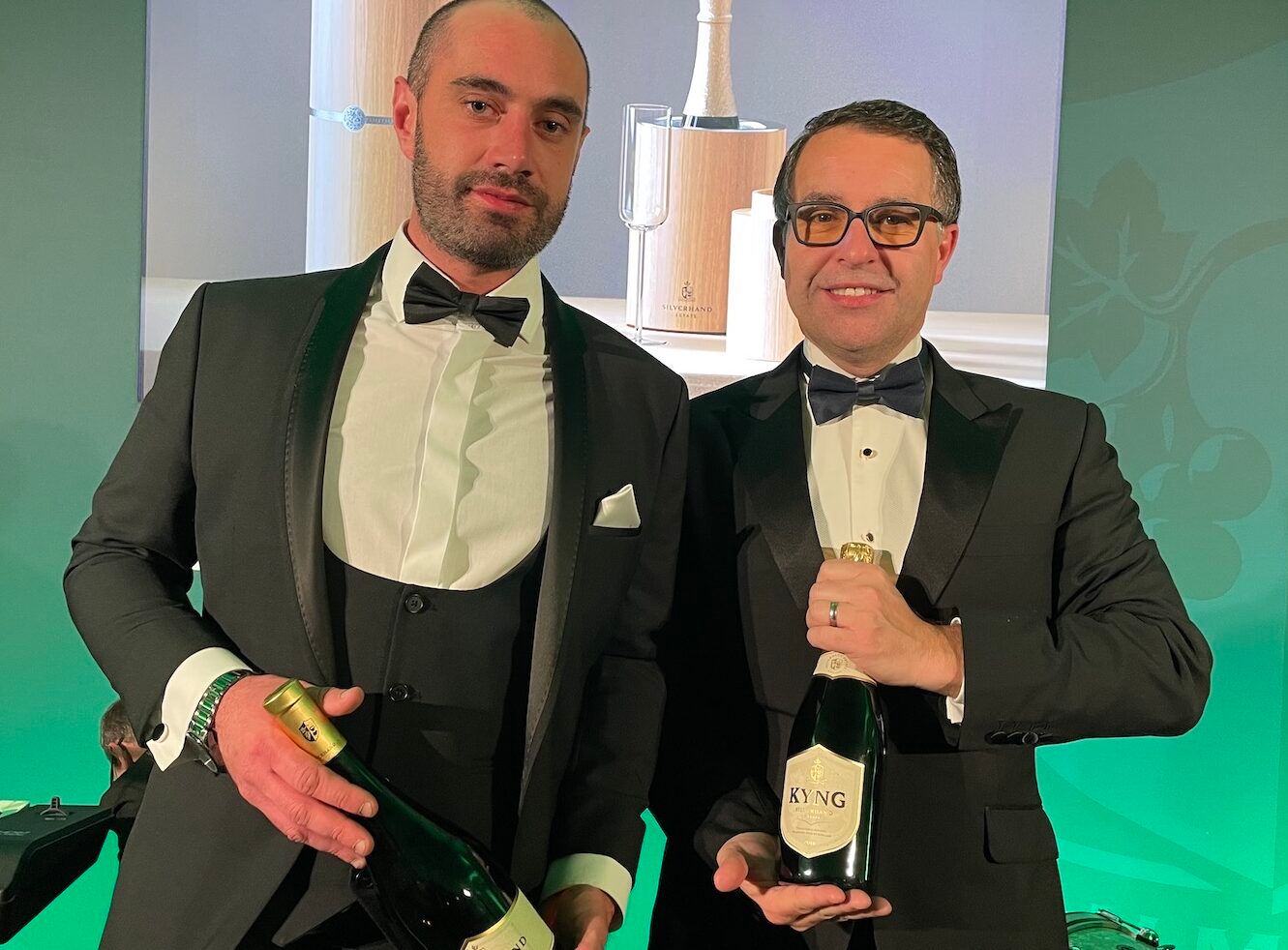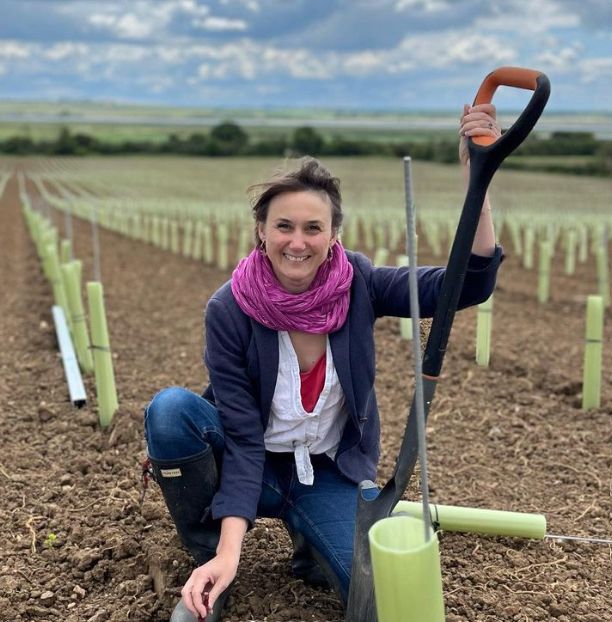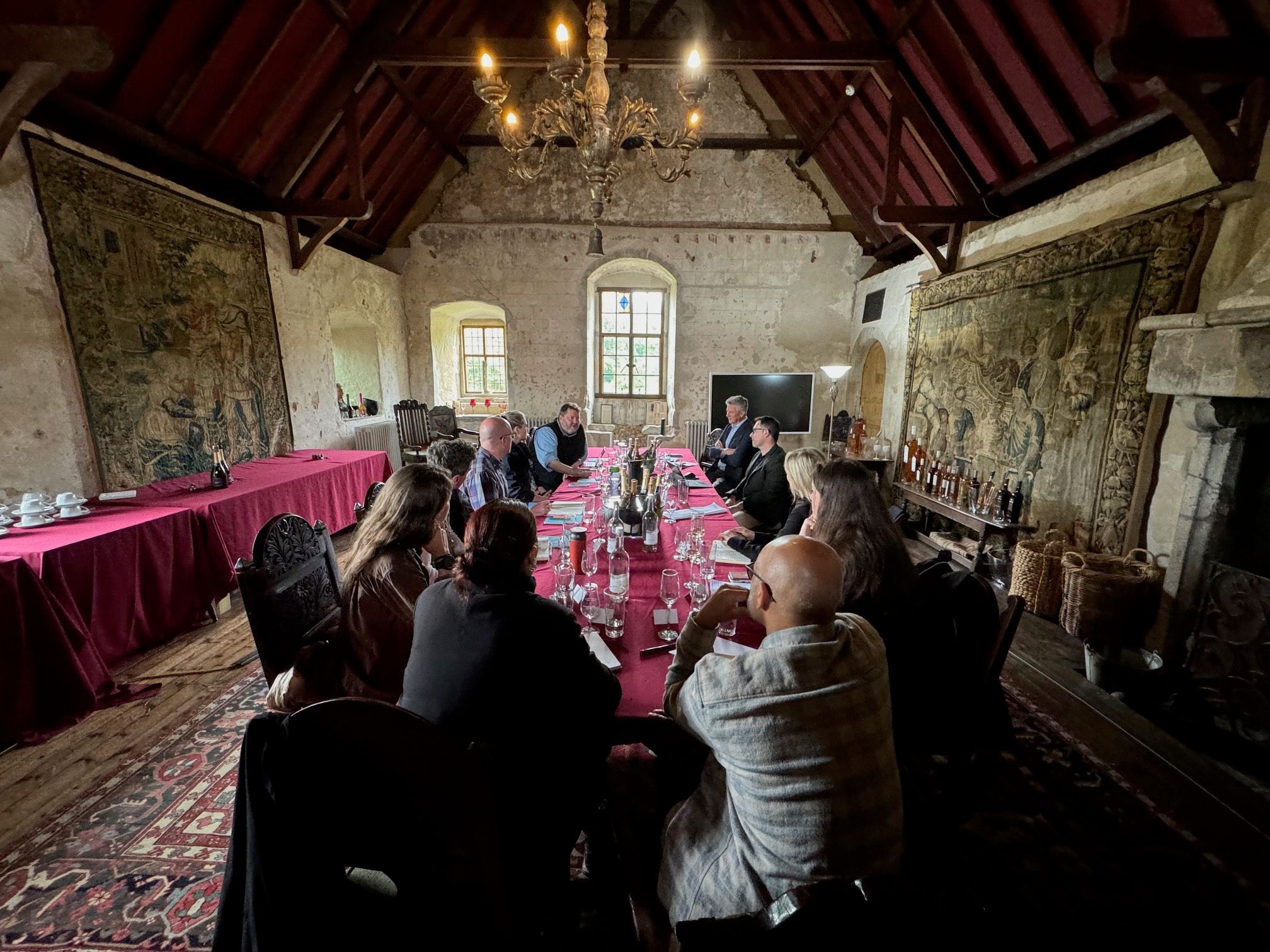When I was researching Vines in a Cold Climate in 2022 the issue guaranteed to rile up English wine producers wasn’t Brexit, the Sussex PDO or the baffling Covid restrictions which were still in place at the time but Charmat. Yes, a method for making fizz turned out to be the most controversial thing in the entire book.
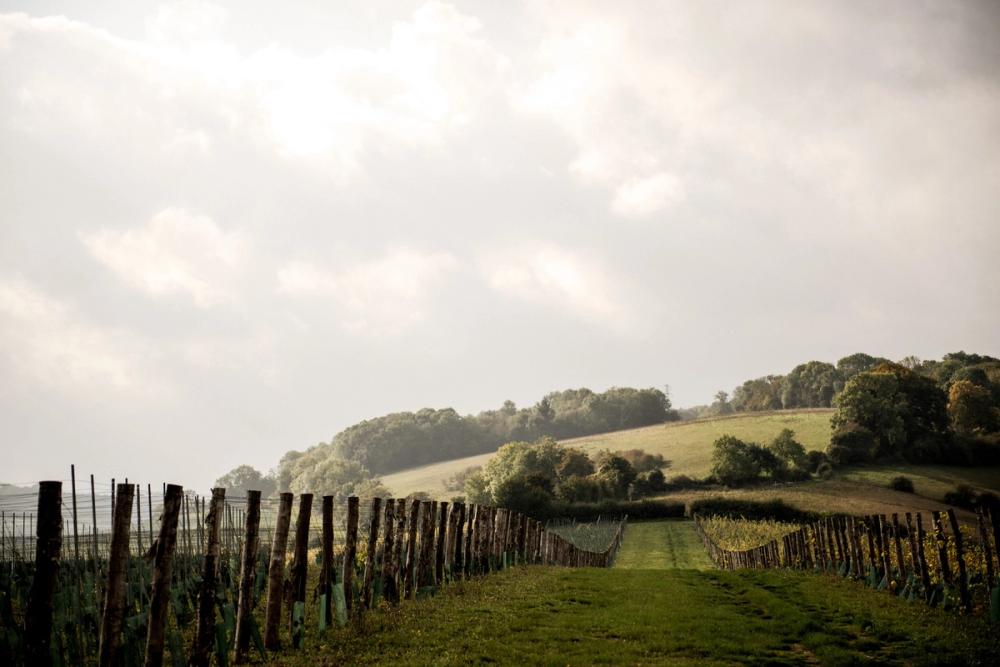
The sheer scale of Silverhand is not something seen before in England
The ire was focused at one brand in particular, Harlot. It is produced by MDCV UK which is backed by serviced office tycoon Mark Dixon who also owns Château de Berne in Provence. The name caused a bit of a stir but, according to CEO Gary Smith, “people were more upset about Charmat than the name.”
Smith said he was taken aback by the reaction. He was just giving the market what it wanted: 50% of British sparkling wine sales are tank-fermented, mainly Prosecco. “Why ship in 100 million bottles of wine from Italy when we can produce it locally?” he asked.
Meeting the team
I met Smith at an event at 10 Trinity Square to highlight not Harlot but the range from Silverhand Estate in Kent. It wasn’t like any wine event I’d been to before. There was little talk about winemaking methods with the winemaker’s name, Theo Cullen, hardly mentioned. Instead, the incredibly on-message team led by Smith with marketing director Emma Clark and sales director Henry Boyes explained how they were selling and marketing their product, bandying about terms like Fast Moving Consumer Goods and the like rather than malolactic fermentation and dosage.
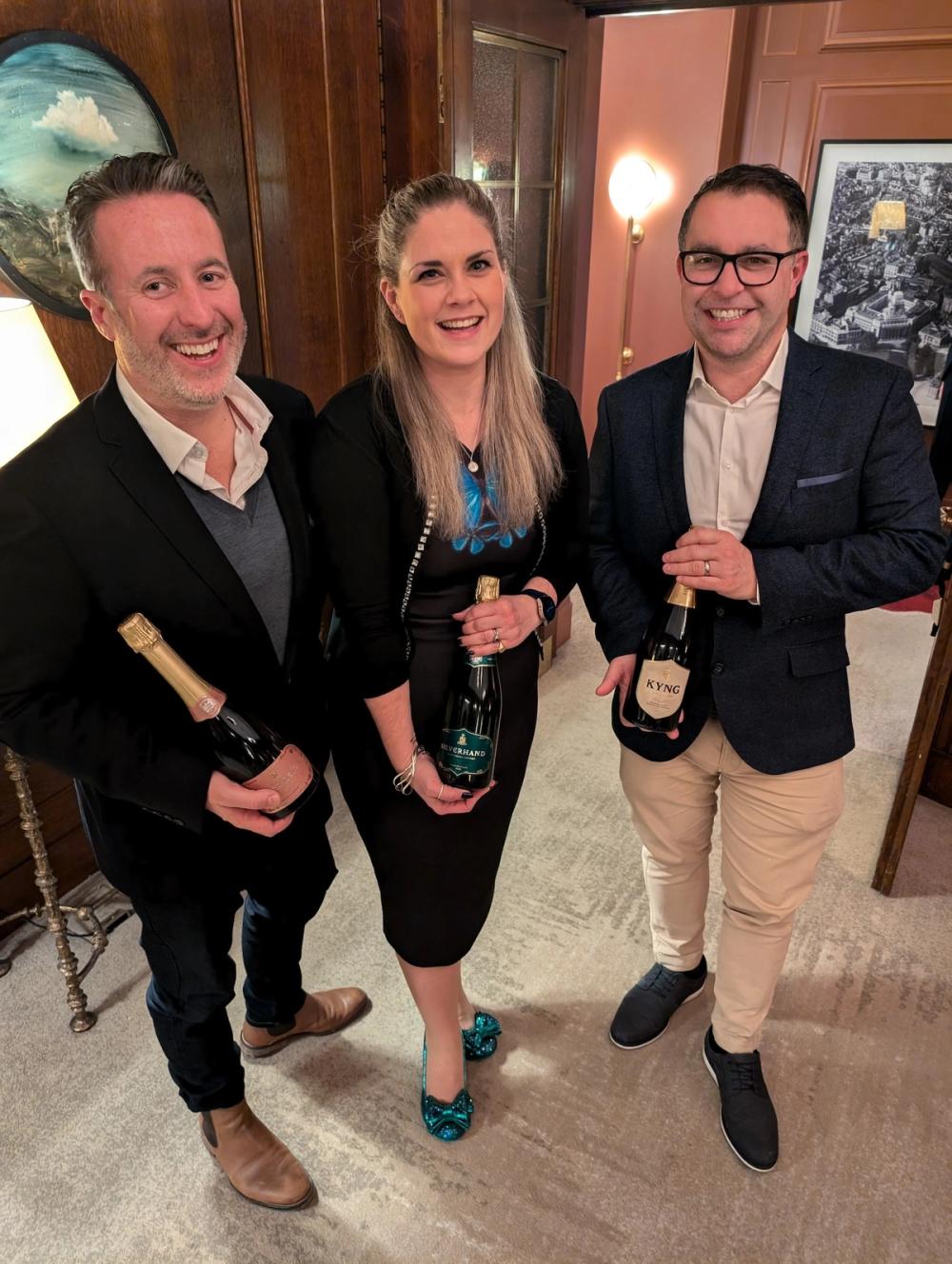
The aim is to get people to drink English wine who wouldn’t have considered it before: Henry Boyes, Emma Clark and Gary Smith (l-r)
Clark’s background is in the wine trade with stints at Enotria&Coe but she’s also worked with cream liqueur brand Amarula. She explained about the importance of “sampling and activations” in shops and getting “liquid on lips” as, apparently, their wines have a “high conversion rate.” This is the language of a big spirits company like Diageo rather than the tweedy old world of wine.
The conversation moved on to gondolas. I had visions of delivering wines by boat but disappointingly learned that these are just temporary shelving units that sit at the end of a supermarket aisle.
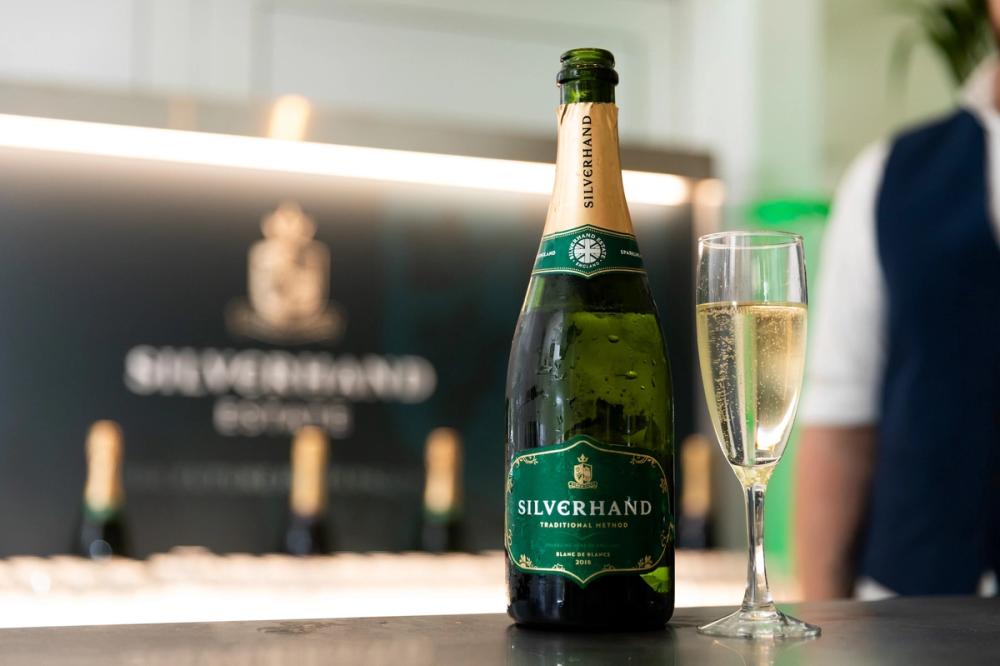
While Silverhand is aimed at the on-trade and indies, MDCV UK has other brands in Ocado, Tesco and Marks & Spencer. It also produces the house fizz for the Ivy chain of restaurants and supply Silver Reign to the RSC in Stratford. According to Boyes it's also eyeing up Blenheim Palace and being the official wine sponsor to the PGA while Harlot is very big in Scotland and Northern England. It had the canned version on sale at the Edinburgh Fringe last year, and will again in 2025.
Clearly MDCV UK means business. It’s a very different approach to most English producers which start with the wine then think about how to sell it. The sheer scale of Silverhand is also something that has never been seen before in England. Smith joined the company in 2019 just as it was planting 1.25 million vines at the estate near Gravesend – the big three Champagne varieties plus Bacchus and Solaris.
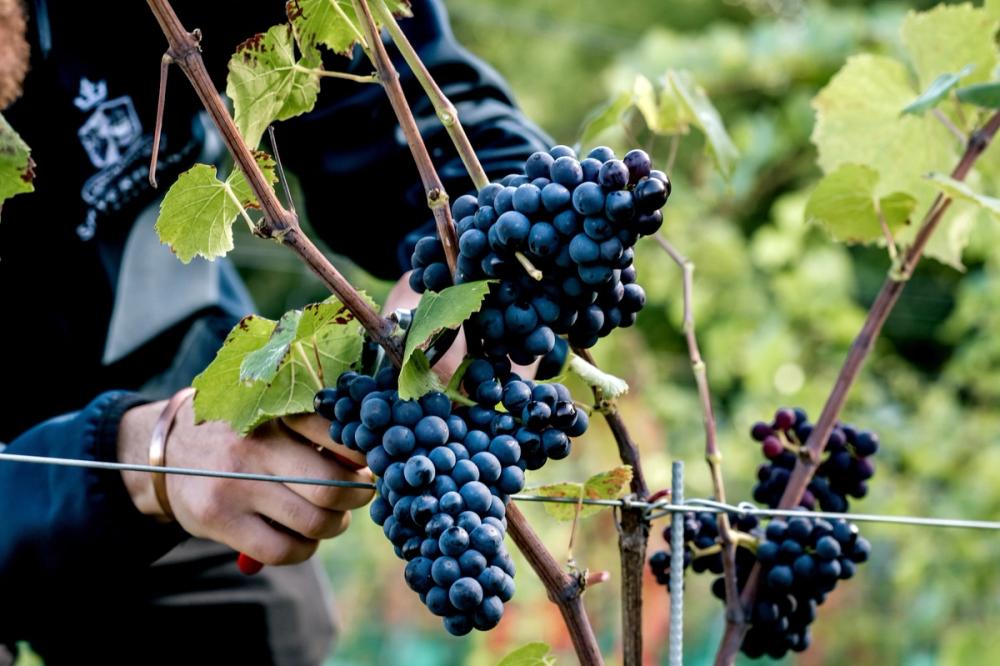
Initially the vineyards were managed by a French team, now replaced by an in-house team
Initially the vineyards were run by a French team but “in 2022 we took management of the vineyard on in earnest, there were some learnings, we’ve got the model and they’re really coming into their own,” Smith explained.
The aim is to get production up to four million bottles annually by 2028 across three English properties. The firm has just sold Kingscote vineyard in West Sussex which it had owned since 2017 but they have two other estates: in the Crouch Valley in Essex and 80 hectares near Bodiam Castle on the East Sussex/ Kent border. Like Silverhand, each property operates as a single estate.
Smith explained: “We need diversity to spread yield risk geographically” especially as they are organic presumably – something that’s far from easy in England’s damp climate.
Not only does it farm organically but MDCV is part of the Regenerative Viticulture Foundation. Silverhand winery became the first carbon negative in the UK – from the vines to the warehouse, everything up to distribution, with no carbon off-setting. There is also B Corp accreditation in the pipeline. The aim is to sell people a local, sustainable alternative to Prosecco as well as more premium wines.
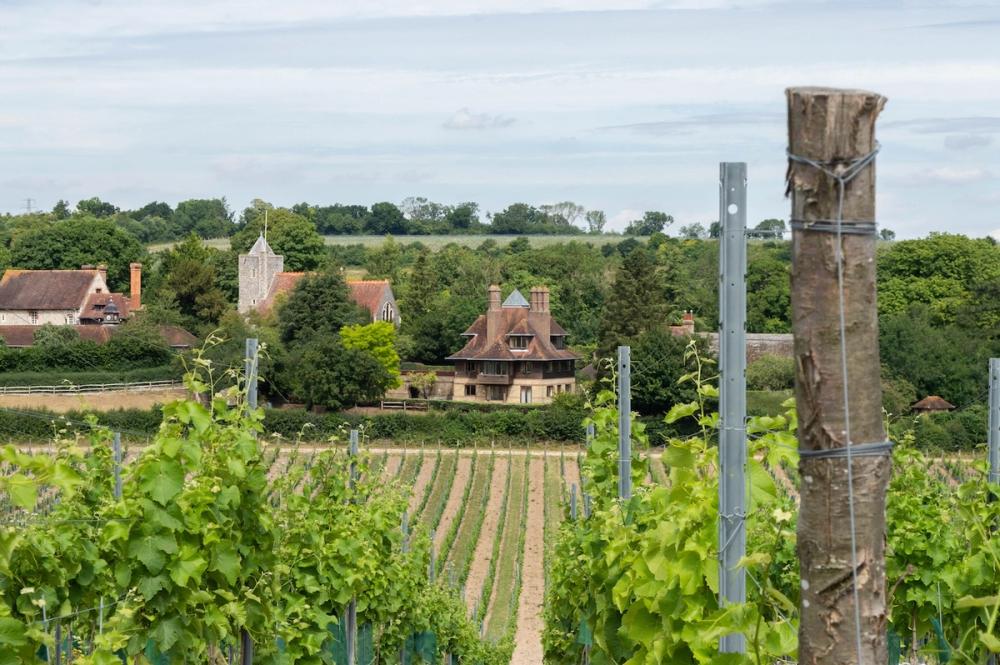
Silverhand has become the first carbon negative winery in the UK
Regarding all these initiatives, Smith admitted: “I don’t think it means anything to general consumers. People aren’t willing to pay more for organic wine.”
It’s more about signaling this to retail and the trade.
It’s certainly a brave move trying to produce affordable wines organically in England. Smith argued that while “English wine does a good job of premium. It’s only 3% of the overall sparkling wine market, a tiny proportion of what is sold in the UK.”
He said that his rivals weren’t Ridgeview or Chapel Down, but Cava, Prosecco and cremant. Their Bramble Hill Marks & Spencer fizz is currently £14 but Smith thinks in a few years they could get it closer to £10.
The aim is to get people to drink English wine who wouldn’t have considered it before due to its high price. MDCV are making fizz for the people.
Public perception
Thanks to the charmat method you can make wines in months rather than years though the taste is noticeably different. The flavour profile of the Silver Reign Brut, which is made from Chardonnay, Pinot Noir and Pinot Meunier, coming in somewhere between Prosecco and Champagne – Chamsecco! It won a gold medal at the 2022 Effervescents du Monde championship and, at around £20 retail, it’s cheaper than traditional method wines.
The worry from the old guard like Ridgeview and Gusbourne is that customers will not understand why their wines are significantly more expensive. Or they will buy a charmat wine expecting something like Champagne and it will put them off traditional method English sparkling wine.
Smith was candid: “I can understand why it upsets traditional method producers. Consumers can’t differentiate between the two.”
My view is that as long as the quality is high, the prices are low and the wines look noticeably different then it shouldn’t be a problem. That’s certainly the case with Harlot and London Clay, an on-trade only Essex charmat wine sold through Hallgarten & Novum. They look nothing like Champagne or English sparkling wine and the London Clay rosé I tasted recently was delicious. It should fly out of bars at £35 a bottle.
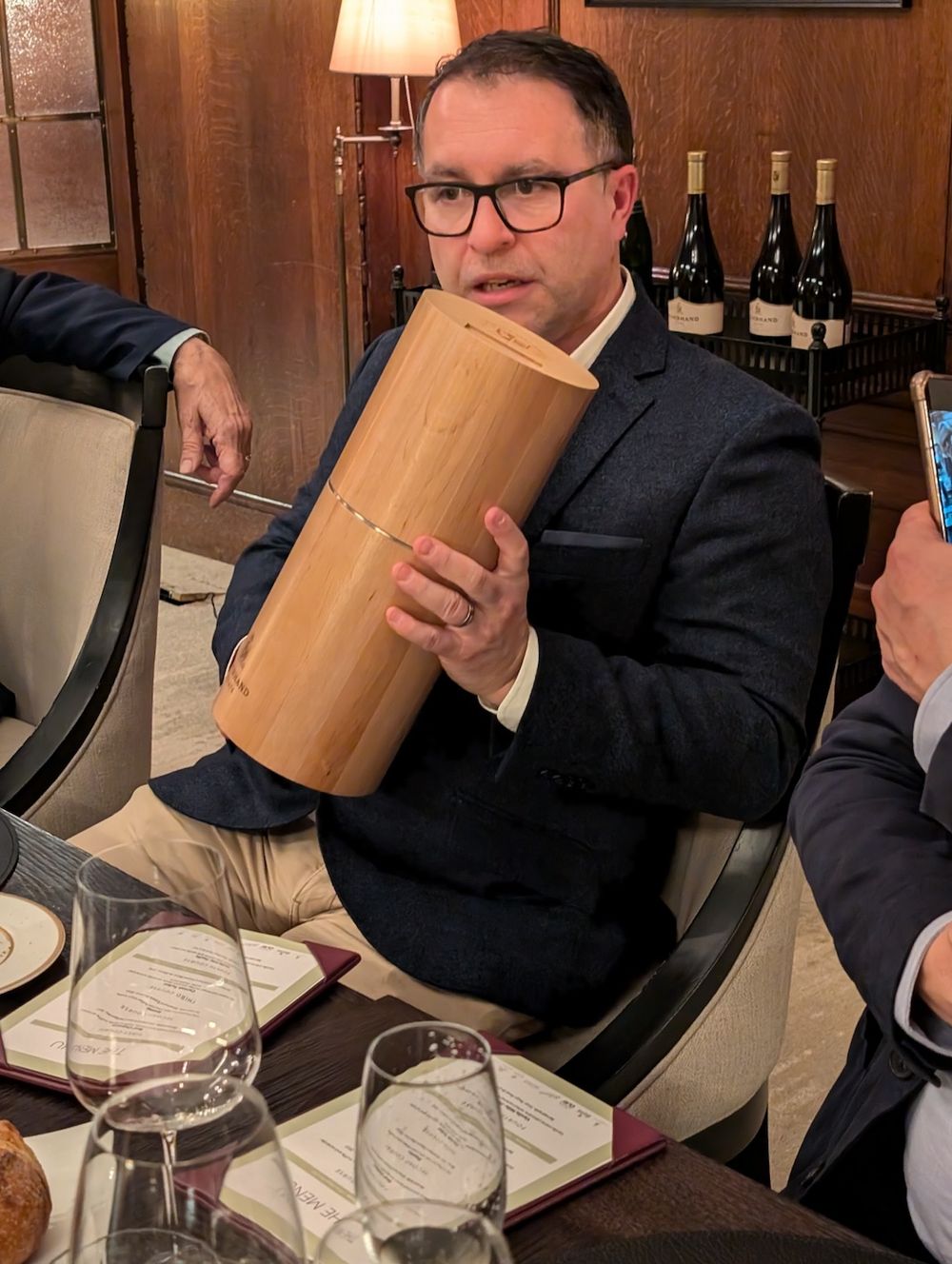
Gary Smith demonstrating the Norman Foster-designed packaging for Kyng
Silverhand, however, makes both traditional method and charmat and the branding is very similar so there is potential to confuse their own customers – the former labelled ‘English Sparkling Wine’ and the charmat ones labelled ‘Sparkling wine of England’. Though there’s no mistaking the ambition in the £395 Kyng cuvée which comes in fancy Norman Foster-designed packaging.
But to help customers to differentiate between the £20 Silver Reign Brut (charmat) and the £25 Silverhand Classic Brut (traditional method) Smith believes it would help customers to have a name that means something to them.
“We need something more marketable but I haven’t solved that yet,” Smith says. He is keen for the industry to agree on a name for traditional method and confesses to being a fan of Ridgeview’s ‘Merret’ as it has a good story behind it.
“The industry needs to mature a little from an attitude point of view to get to a point when it’s more collaborative,” he says.
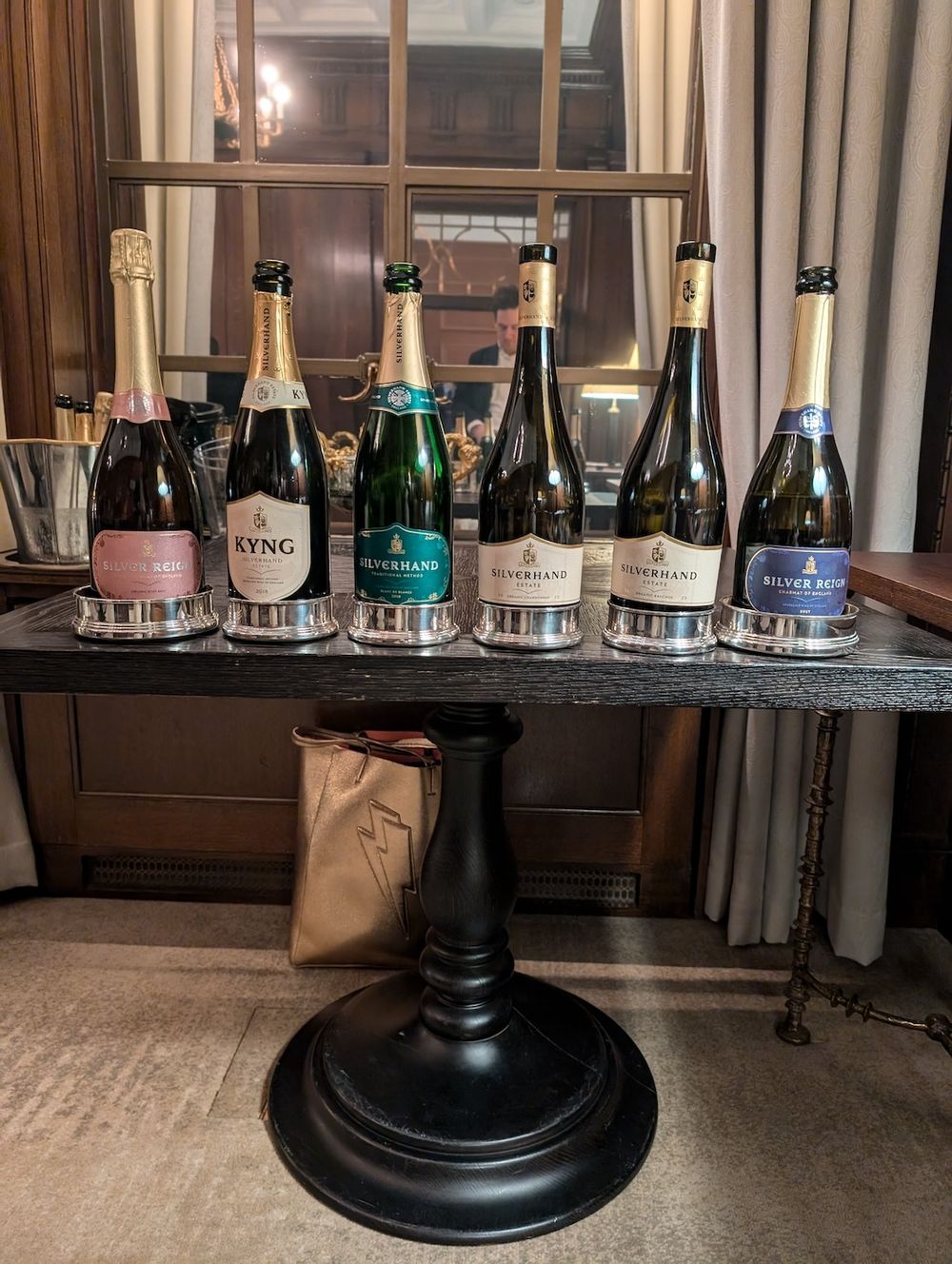
The tasting line-up at 10 Trinity Square
Cellar door
While Silverhand’s focus is on the on-trade, they are open to visitors and, as you might have gathered by now, they’re not thinking small. They have plans to open a Norman Foster-designed winery and visitor experience at Cuxton near Chatham.
So far, it’s run into the usual problems associated with trying to get anything built in Britain. A group calling itself the Guardians of the Cuxton Countryside objects to having a “vinicultural Disneyland on our doorstep”. Smith, however, is confident that with the building being carbon neutral and 85% below ground it will eventually get through planning hell citing a more business-friendly Labour regime both locally and in Westminster.
I get the impression that Smith is the kind of businessman that relishes a challenge, and he’s certainly got the money to back himself in the ring. Whatever the case, MDCV UK is here, is ticking all the right boxes and has the ambition to make a success of English sparkling wine – at a scale the industry has never quite seen before.
MDCV UK is a commercial partner of The Buyer. To discover more about them click here.

